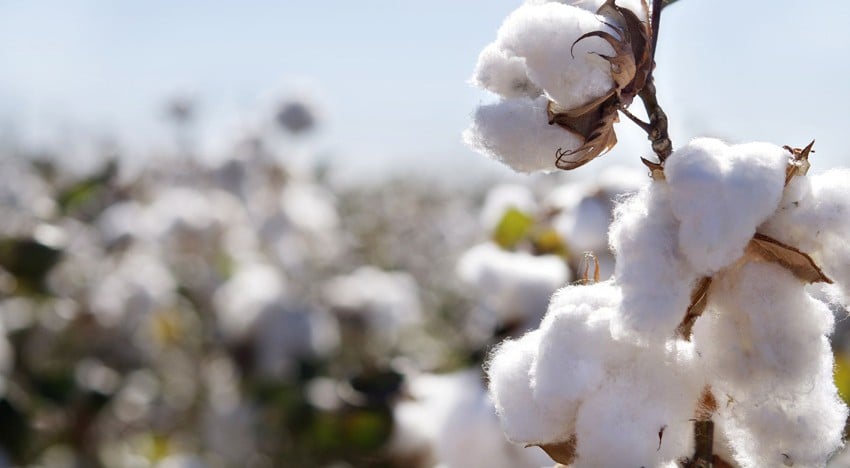
Measures are being introduced to reduce high carbon footprint of cotton which is a threat to the environment

Pakistan, the fifth largest global cotton grower and third largest exporter of raw cotton, is among the major growers of cotton in the world. Today, Pakistan is one of the largest exporters of cotton yarn and fourth largest consumer of cotton, which makes this crop significant for Pakistan’s economy. The textile industry of Pakistan comprises over 400 textile mills and 1,200 ginning units and accounts for 40 per cent of Pakistan’s total labour force and nearly 60 per cent of its exports.
However, with the passage of time, this sector has faced multiple problems due to energy shortfall, inflation and high-cost of production. On the other end, environmental experts regard high carbon footprint of cotton a significant threat to the environment, as it’s a water intensive crop.
Additionally, high-energy consumption and inefficient production processes are not only increasing the cost of manufacturing but also increasing emissions in the atmosphere. The situation is also proving to be hazardous for labourers working in the sector.
Efforts are being made to find solutions. In order to deal with such impacts, Sustainable Agriculture Programme of WWF-Pakistan, for instance, is working to help farmers produce cotton in a sustainable way through projects, including Sustainable Cotton Production in Pakistan’s Cotton Ginning Small and Medium Enterprises (SMEs), Pakistan Sustainable Cotton Initiative (PSCI) and Better Cotton Fast Track Fund (BCFTF). These are to be implemented in nine regions across Pakistan from Sukkur to Jhang, with more than 80,000 cotton farmers engaged.
The "better cotton" produce is unique as it has lower environmental and socio-economic impacts than regular cotton. It saves 37.5 per cent irrigated water and 40 per cent chemical fertiliser in better management practices, thus benefitting farmers.
Ginners are also encouraged to adopt efficient and sustainable ginning practices pertaining to processes and mechanical efficiency, so that they can also conserve energy and improve efficiency.
Workers should have the right set of skills to work with ginning SMEs; establish linkages between "better cotton" farmers; and campaign to increase demand of "better cotton" to promote sustainability.
On the other end, capacity building of SMEs is also carried out through extensive trainings and workshops to bridge their knowledge gap. In order to increase collaboration among project stakeholders and partners, quarterly meetings are organised, whereas at the national level, a National Stakeholders Council has also been established.
A cotton waste management plan has also been developed and implemented, as earlier cotton waste from ginning units was utilised in brick kilns causing many environmental and social hazards. Therefore, rural women were trained in mushroom cultivation on cotton waste, which proved successful and now they are successfully growing oyster mushrooms on the waste.
Cotton waste from ginning units is also used in making sundried board by blending 40 per cent of the waste with 60 per cent raw paper waste. The sustainable product produced has proven to be more durable which is used for book binding, packaging, etc.
Furthermore, training workshops for women picking cotton in the field are also organised where they are informed about better practices for clean cotton picking, pesticides related hazards and occupational health and safety issues.
Students of various universities are also sensitised through a series of seminars to highlight the correlation between sustainable consumption and production and a sustainable living.
In order to educate the rural population, street theatre has helped raise awareness among ginning workers, ginners, and the local community regarding social and environmental issues in cotton production and processing. Such performances have attracted more than 7,000 members of the farming community, gin workers and the general public.
Various stakeholders, such as the Pakistan Cotton Ginners Association (PCGA), are working to motivate its members to become part of project activities. Furthermore, various MoUs had been signed with different government organisations, such as the Centre for Improvement in Working Conditions and Environment (CIWCE), Small and Medium Enterprise Development Authority (SMEDA) and Pakistan Cotton Standards Institute (PCSI) so that research studies and technical surveys can be conducted.
Recently, a field visit for print and electronic media journalists was organised to highlight the importance of "better cotton" for the country and farming community. All these efforts have benefitted the entire chain as farmers are now producing cotton sustainably by minimising the use of pesticides and water; women picking cotton are now sensitised about the harmful use of pesticides, and, thus, take necessary precautions before they go into the field; ginners have benefitted economically through improved efficiency and their labour force has also benefitted through improved working conditions and good health.
Sustainability in agriculture indicates a positive trend for Pakistan’s economy and there’s a dire need to implement it on national level, so that overall carbon footprint of cotton can be reduced.
This will not just increase Pakistan’s exports manifold but also encourage international retailers to prefer "better cotton". Most importantly, it will lead to a low-carbon environment, which will greatly reduce our emissions and help to deal with serious environmental issues of climate change and global warming. There’s a dire need to produce cotton sustainably so that we can protect this precious resource and pass them on to our future generations.